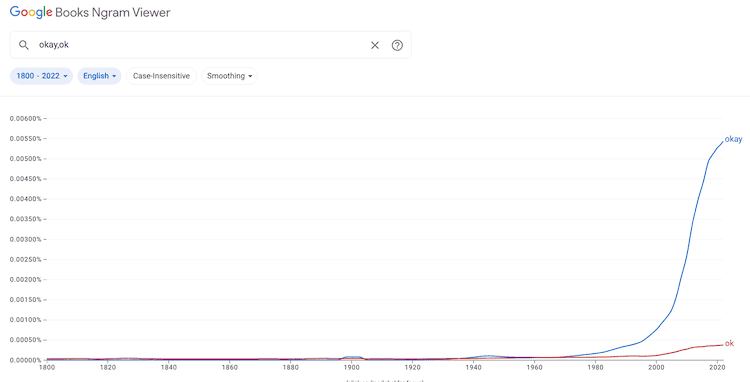
An ever-present danger in writing is relying on your assumed facts. We tend to trust our memory when writing, so simple slip-ups can easily happen.
The most common involve dates, geography, and historical events.
Innocent mistakes with facts like these can easily happen because our memory is never 100% accurate.
However minor they seem, mistakes with facts will affect your credibility, so always take care.
Never trust your assumptions
I vividly recall making a silly mistake with a quotation. Relying on my memory, I attributed a quote to Mark Twain when, in fact, the quote was by Oscar Wilde.
It was only a minor detail, but some of my readers didn’t think so. Their messages, comments, and emails arrived quickly, pointing out my mistake.
As one said, “If I notice one mistake, it means there could be more.”
The boot was on the other foot when I noticed a factual error in an online news article. In the article, there was a reference to Neil Armstrong landing on the moon on July 19th, 1969.
I made a comment pointing out that the correct date was July 20th, 1969. The writer responded to my comment, saying that it was a minor detail and that no one would notice or care. Well, I did.
In fiction writing, and especially period fiction, there are always little traps.
It’s so easy to write that a character zipped up his jacket against the cold night air.
However, the zipper was invented by Whitcomb L. Judson in 1892, and only came into use for clothing in 1925.
So, for a story set in the late nineteenth century, it would be an incorrect assumption.
I only mention this because I recall watching a movie set during the Civil War, where a soldier zipped up his trousers.
Commonly assumed facts that are easy to get wrong
When you rely on your memory or knowledge, things can so easily go wrong in writing. We live in a world of misconceptions, fake news, conspiracy theories, and even alternative facts.
Here are a few examples that might make you think.
The stereotype of short dictators is often based on the Napoleon syndrome. However, Napoleon was of average height for the time.
He has been estimated to have been 5 feet 6 inches or 5 feet 7 inches, depending on which research study you use.
Bananas grow on trees, don’t they? Well, no. The plant that produces bananas is a giant herb.
Like a red rag to a bull is a common idiom. However, the truth is that bulls and other cattle are color-blind to red. What a bull reacts to is the movement of the matador’s cape.
Another common misconception is that Salem witches were burned at the stake. In truth, they were hanged. However, burnings did occur in medieval Europe.
Language can also be a trap in writing. The familiar words okay and OK are a good example.

The words only came into use around the middle of the nineteenth century, and much later for popular use. So, if your story is set before then, using okay or OK would feel out of place.
For period or historical fiction, it can be easy to use the words by mistake.
Before that time, the correct term would probably be, very well, or very well then.
These are only a few examples of facts that we often take for granted and fail to check.
They typically happen because we hear these facts so many times that we assume they must be true.
It’s fiction, so facts are irrelevant
Yes, fiction writing is all about what-ifs, imagination, creativity, and storytelling, so facts can be invented or distorted.
While it can be true in some respects, fiction also needs to be logical.
As Mark Twain said (not Oscar Wilde this time; I checked.), “It’s no wonder that truth is stranger than fiction. Fiction has to make sense.”
In this respect, you could say that it makes no sense to move well-established historical dates such as those for wars or reigns of kings and queens.
Many fiction stories have been written about John F. Kennedy surviving his assassination.
However, getting the date of his assassination wrong would be a clumsy factual error and affect the credibility of any story.
Even in time-travel science fiction, where a writer’s imagination can run wild, some facts remain facts. You can have characters move in time, but you can’t change the times.
If a protagonist travels back to 14th-century England, referring to seeing someone smoking a pipe would be a factual error.
Why? Because tobacco didn’t arrive in England until 1586.
Errors in informational and opinion writing
If you are writing online articles or even blog posts, you really need to take care with facts.
It’s so easy to include information that is purely based on your assumed facts, estimates, or memory.
Fact-checking is a vital part of online writing in any form.
Here’s an innocent example related to food and culture.
Spaghetti Bolognese is a famous traditional Italian dish.
Oops, not quite! Here’s the real story.
It is a Western invention based on the simplification of ragù alla bolognese, which originates from Bologna. It is typically served with tagliatelle, a broad, flat pasta, rather than spaghetti.
Classic Italian dishes that feature spaghetti include spaghetti alla carbonara, spaghetti aglio e olio (garlic and oil), and spaghetti alle vongole (with clams).
One other cause of fact errors can be a simple typo, such as writing 1749 instead of 1794 or kilograms instead of milligrams.
Yes, you should always check your facts, but meticulous proofreading is also necessary.
Summary
It’s very easy to assume your facts are correct. You might have heard or read them so many times that you are certain.
However, slip-ups happen. Mixing up dates or using words that didn’t exist at the time can affect your credibility with readers.
Even if you’re writing fiction, sticking to some established facts helps your story feel real and more
believable.
As for sharing information or opinions, double-checking your facts and proofreading carefully will save you from embarrassing mistakes.
Whatever you are writing, never assume that your facts are right. Don’t trust your memory; always double-check.
Related Reading: 10 Free Research Tools For Writers Who Want Facts Fast
Share This Article


